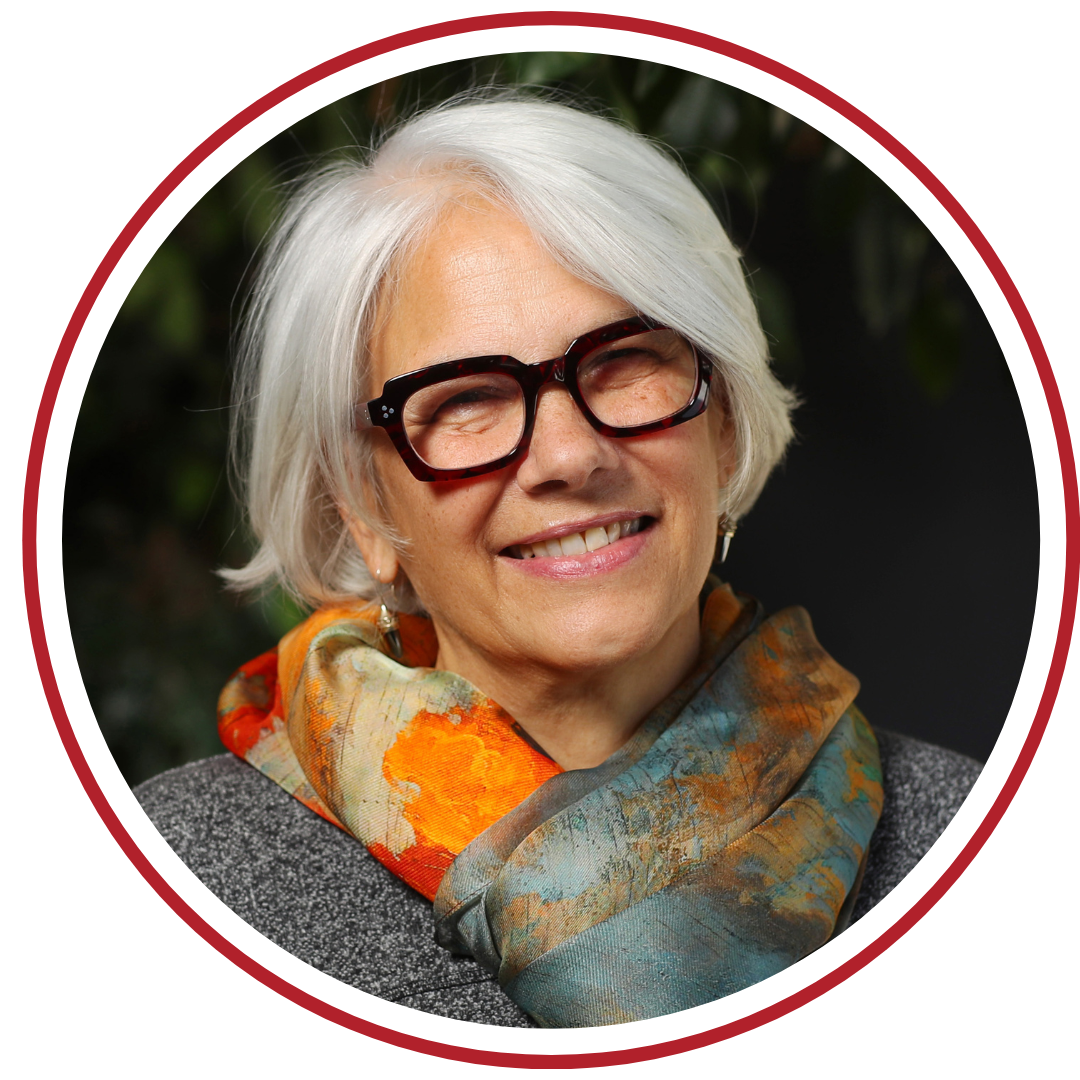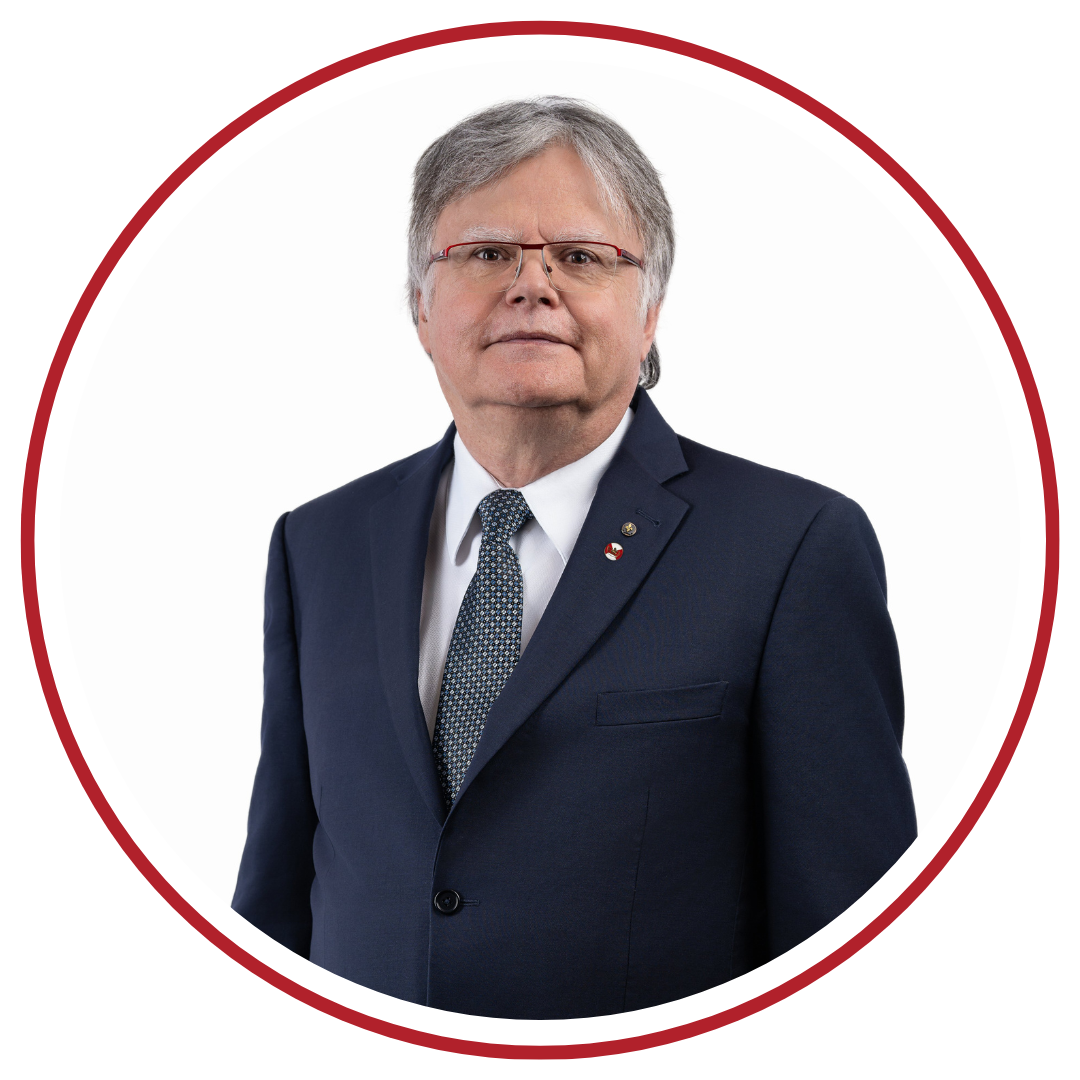Prof. Françoise Baylis, President-Elect of the RSC (November 2025-November 2028)

Françoise Baylis CM, ONS, PhD, FRSC, FISC is a leading philosopher and bioethics expert, renowned for her pioneering research at the intersection of healthcare ethics, policy, and practice. She has shaped global gene editing standards through her work with the WHO and serves on the International Science Council's Governing Board. As Distinguished Research Professor Emerita at Dalhousie University, Prof. Baylis is dedicated to advocating for a more ethical and inclusive approach to science and biotechnology. Her work challenges conventional bioethics, pushing for broader, deeper thinking on health, science, and public policy.
Prof. Baylis is a member of the Order of Canada and the Order of Nova Scotia, and an elected Fellow of the Royal Society of Canada and the International Science Council. She received the Queen Elizabeth II Platinum Jubilee Medal in 2022. That same year, she was awarded the Killam Prize for the Humanities, followed by the Canada Council for the Arts Molson Prize in Humanities in 2023—Canada's highest honours for humanities scholars.
She is also the author of the award-winning Altered Inheritance: CRISPR and the Ethics of Human Genome Editing, a critical guide to the ethical issues surrounding genome editing.
In November 2024, Prof. Baylis was elected President of the RSC for a three-year term beginning in November 2025.
For more information about Françoise Baylis’ work:
- www.francoisebaylis.ca
- https://www.dal.ca/faculty/arts/philosophy/FacultyandStaff/emeritus---adjunct-members/francoise-baylis-.html
Dr. James Grier, President-Elect of the Academy of Arts and Humanities (November 2025-November 2028)
In 2016, James Grier, FRSC, Professor of Music History, Western University, was elected Fellow of the Royal Society of Canada. He is an award-winning scholar recognized internationally as one of the foremost researchers in medieval music. His work is supported by SSHRC (1989-90, 1998-2001, 2002-5, 2006-9, 2010-13, 2014-19, 2021-26); and fellowships from the Institute for Advanced Study, Princeton (2002), the Killam Foundation, the National Endowment of the Humanities and American Council of Learned Societies (all 2009); and the John Simon Guggenheim Memorial Foundation (2020). His specialized studies on the musical legacy of the eleventh-century monk Adémar de Chabannes appear in The Musical World of a Medieval Monk (Cambridge University Press, 2006); and an edition of Adémar’s music; as well as a palaeographic study of his music hand (Brepols, 2012, 2018). Two monographs, The Critical Editing of Music (translated into Spanish, Japanese translation forthcoming) and Musical Notation in the West (Cambridge 1996, 2021), have become standard works in the field of musicology and performance studies. His current research concerns the origins of musical literacy in the medieval West, where he is investigating the development of musical notation as a non-verbal, symbolic language, and the strategies musicians created to comprehend it.
Dr. Guy Laforest, President-Elect of the Academy of Social Sciences (November 2025-November 2028)
After earning his Master's degree and Ph.D. in political science at McGill University, Guy Laforest, FRSC, worked two years at the University of Calgary as a lecturer and post-doctoral fellow, before teaching for 29 years (1988-2017) at Université Laval. From 2017 to 2022, he held the position of Director General of the École nationale d'administration publique. He is widely recognized as a leading expert on constitutional and referendum issues in Canada. One of his main focuses has been to offer a critical interpretation of Canadian federalism and Quebec's place in this government system, from the standpoint of political philosophy and intellectual history. Professor Laforest also conducted extensive research on two major political-intellectual figures, Pierre-Elliot Trudeau and Charles Taylor.
Multilingual, he has taught in Belgium, Spain, Austria and the United States. He is also deeply committed to the advancement of research, and has helped organize some thirty symposia while directing the Prisme collection at Presses de l'Université Laval, publishing 50 titles between 1998 and 2023.
Professor Laforest is also known for his long-standing involvement with organizations aimed at promoting and advancing academic research. For example, he has held positions of responsibility at the Association internationale des études québécoises, in addition to having served as President of the Scientific Committee for the annual conferences of the Federation for the Humanities and Social Sciences in 2001 and of the association Acfas in 2013. At the time of his retirement from the Université Laval in 2017, he had recently been appointed President of the Federation for the Humanities and Social Sciences and was a member of Acfas’ Board of Directors.
He joined the Royal Society of Canada's Academy of Social Sciences in 2014, where he served as a member of the Expert Reports Committee for two years, and subsequently as a member of the Working Group on the Future of Higher Education in Canada and of the International Committee.
Dr. Robert Boily, President-Elect of the Academy of Science (November 2025-November 2028)
Robert Boily, C.Q., FRSC, is a multidisciplinary researcher and a senior scientific advisor for 35 years to the Government of Canada, the Government of Quebec, academia and the industry. He has worked with the National Research Council of Canada, NSERC, the Canadian Space Agency, the Department of National Defense, the National Institute of Scientific Research (INRS), Hydro-Québec and several other Canadian institutions.
He has academic and professional experience in physics, electronics, photonics, advanced materials, and a career that spans 45 years and more than 1000 research projects carried out in scientific programs totalling several hundred million dollars. In the early 1980s, he worked with the first 8- and 8/16-bit microprocessors (Intel 8080 and 8088), the first electronic memories, optical fibers and light pulse encoders that revolutionized micro-imaging.
His work has contributed to the development of numerous scientific fields such as imaging, aerospace, photovoltaics, nanotechnologies, supermaterials, telecommunications, electrical energy and robotics. They have also allowed him to collaborate with the largest international corporations and institutions, such as the NASA, the European Space Agency, Siemens AG, Pratt & Whitney, General Electric, Airbus, Philips Electronics, the U.S. Department of Energy, and many others.
He has served, as President or member, on numerous scientific boards and committees in Canada and the United States (RSC, AAAS, Sigma Xi, University of Montreal, École de Technologie Supérieure, etc.), and was the official advisor to the Killam Prizes and Research Fellowships for 7 years (2013-2019). Mr. Boily has received some 35 awards and distinctions from national and international authorities. He was honoured twice in Washington D.C. and decorated by the governments of Canada, Quebec and France.

